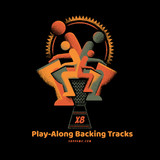Music, Sound Waves, Brain Waves & Development
Music can produce dramatic emotional responses in its listeners.
Jazz and classical music can both soothe or motivate, a funeral dirge
can start tears flowing, gospel music inspires and reggae can get a
party started. These responses to music may be learned, to an extent,
but are also products of the way the music is interpreted by the brain,
and how music can help rewire the brain and change its cognitive and
emotional functions.
The brain is a vast landscape of neural
pathways that are constantly being studied in order to see the best
ways to treat different cognitive and neurological disorders, such as
autism or dyslexia. With the prevalence of such disorders, researchers
are focusing more and more on not only the development of the brain,
but also how the brain can rewire itself when faced with different
stimuli through the five senses. Music is a large part of many studies,
especially since the emotional response to music is pervasive and
occurs in all societies. Beyond emotional response and the benefits of
calming babies or adults with soft sounds or rhythmic Djembe tones,
music can also teach more about emotional intelligence and the ability
to interpret emotional cues. ScienceDaily.com reports that, “music
training sharpens an individual’s ability to recognize emotion in
sound, an ability that goes a long way in terms of developing
sensitivity to emotional cues and intuitive understanding of social
contexts, two skills critical to emotional intelligence.” The
benefits of this in psychology and for those who work with autistic
children and adults are astounding, considering that many psychological
disorders can have non-emotional responses or a lack of empathy, much
like the emotional and social responses exhibited by those with autism.
Researchers studying the effects of music on the brain
have discovered that brain waves and sound waves look alike. They are
so much alike, in fact, that by recording a brain wave created from a
sound, then playing the brain wave, the sound that was initially played
is played back by the brain wave. Nina Kraus, a researcher at
Northwestern University in Chicago, says, “In the brain wave, you can
still hear elements of the original sound's pitch, timing and timbre.”
Kraus believes that the transformation from sound wave to brain wave is
crucial to how well we hear, learn, read and interact.
What does this mean for musicians? Through your study of music, you
may be better able to function cognitively, emotionally and have a
stronger ability to anticipate and process changes. Due to the
structure of music, you may be better able to predict outcomes and pay
attention longer than those without music training. These benefits can
occur as early as preschool and since music even shows improvement in
Alzheimer’s patients, the wide-reaching cognitive and emotional
benefits of music may be the key to battling many neurological
development or degeneration issues.
Along with other benefits to
music, such as the improvement in math and planning skills, music is
also beneficial in terms of teamwork, creativity and expression.
Grabbing your drum,
udu
or shekere may give you relief from the stress or anxiety of your day,
but since music also helps enhance your overall brain function, it
makes you smarter, cognitively and emotionally, and above all, music is
fun.
Recent Posts
-
X8 Drums Play-Along Backing Tracks
The new X8 Play-Along Series is being produced for our musician friends wanting a fresh way to work …9th Feb 2025 -
What is the Best Size Djembe for Beginners?
If you're new to the world of percussion and interested in learning the djembe, you're in for a t …16th Jul 2024 -
The Benefits of Becoming a Drumming Teacher: Transforming Passion into Profession
Why become a drumming teacher? Becoming a drumming teacher is an excellent way to share your pas …22nd May 2024



